Trump impeachment: President pens angry letter to Pelosi on eve of vote
- Published
Trump has been impeached - how did we get here?
President Donald Trump has lashed out over his impending impeachment in a letter to top Democrat Nancy Pelosi, accusing her of declaring "open war on American democracy".
The president wrote that he had committed "no offences whatsoever".
He is accused of pressuring Ukraine for personal gain and obstructing the impeachment process.
The Democratic-controlled House will hold an impeachment vote on Wednesday, which is expected to pass.
A vote in favour would lead to a trial of the president in the Senate. In theory, this could see him removed from office - although this is unlikely, as it would need a two-thirds majority vote in the Republican-controlled chamber.
Mr Trump has resisted the impeachment process by preventing key aides from testifying before the House of Representatives and by declining to appear himself, despite a public invitation to do so.
And with little hope of changing the outcome of Wednesday's vote in the House, Mr Trump used his six-page letter to rail against the process and denounce Ms Pelosi, the Democratic speaker of the House.
What did Trump's letter say?
Mr Trump wrote in his letter he had been "deprived of basic Constitutional Due Process from the beginning of this impeachment scam" and "denied the most fundamental rights afforded by the Constitution, including the right to present evidence".
"More due process was afforded to those accused in the Salem Witch Trials," he wrote, arguing that the House had "cheapened the importance of the very ugly word, impeachment!"
The president was in fact publicly invited by the Democratic chair of the House Judiciary Committee to give evidence in the impeachment process, which would also have allowed his legal team to question witnesses, but he declined.
The Mayor of Salem, Kim Driscoll, tweeted that the president should "Learn some history", saying the witch trial convictions in the 17th Century were made in the absence of evidence, whereas the case against the president involved "ample evidence".
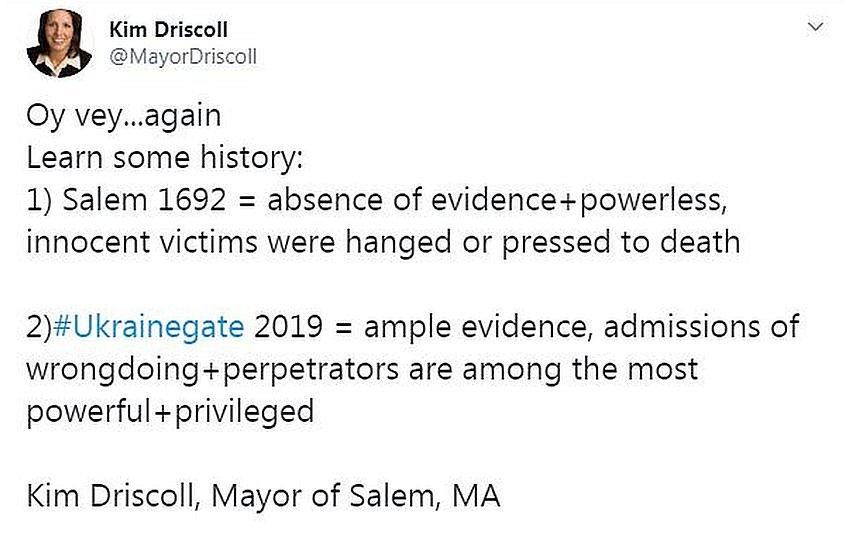

Ms Pelosi told reporters at the Capitol that she had not read the letter in full but had seen "the essence" of it and thought it was "really sick".
In a statement announcing Wednesday's vote on impeachment, she said the House would "exercise one of the most solemn powers granted to us by the constitution".
"During this very prayerful moment in our nation's history, we must honour our oath to support and defend our constitution from all enemies, foreign and domestic," she added.
On Tuesday evening, protests in support of impeachment were held in cities across the US, including New York, Boston and Los Angeles.
Demonstrators carried placards bearing the words "Dump Trump" and "Protect our Democracy".
The hashtags #notabovethelaw and #impeachmenteve trended on Twitter.
What happens on Wednesday?
Mr Trump is facing two impeachment charges: obstruction of Congress, by refusing to co-operate with the impeachment investigation, barring staff from testifying and holding back documentary evidence; and attempting to use his office to pressure Ukraine to investigate his Democratic political rival Joe Biden.
If the House votes as expected on Wednesday along party lines, Mr Trump will become the third president in US history to be impeached. He will then go on trial in the Senate, where senators from both parties are obliged to act as independent jurors.
The Senate is controlled by the president's Republican Party. Republican Senate Leader Mitch McConnell outraged Democrats last week when he said Republican senators would act in "total co-ordination" with the president's team during the trial and vote against the process.
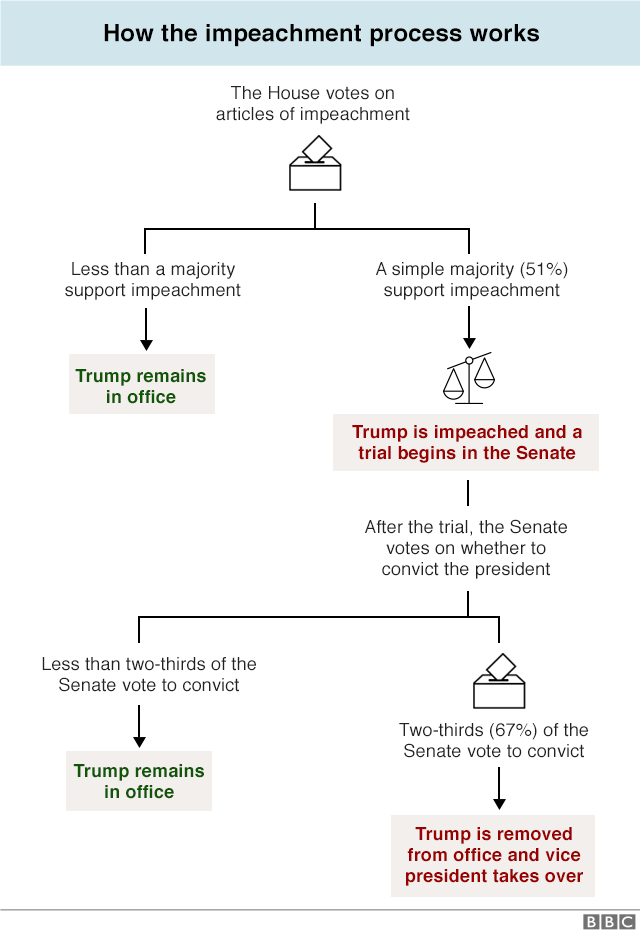

Chuck Schumer, the Senate Democratic Minority leader, said: "If articles of impeachment are sent to the Senate, every single senator will take an oath to render 'impartial justice'. Making sure the Senate conducts a fair and honest trial that allows all the facts to come out is paramount."
Earlier on Tuesday, Mr Trump's personal lawyer Rudy Giuliani appeared to confirm that he worked to remove the US ambassador to Ukraine, Marie Yovanovitch, to clear the way for investigations that could be politically useful to Mr Trump.
Mr Giuliani told the New York Times he passed along to Mr Trump "a couple of times" information about how Ms Yovanovitch had got in the way of potential investigations.
"I needed Yovanovitch out of the way," Mr Giuliani told the New Yorker magazine.

Want to find out more?

A SIMPLE GUIDE: If you want a basic take, this one's for you
GO DEEPER: Here's a 100, 300 and 800-word summary of the story
WHAT'S IMPEACHMENT? A political process to remove a president
VIEW FROM A SWING STATE: A bumpy ride for Democrat backing impeachment
CONTEXT: Why Ukraine matters to the US
FACT-CHECK: Did Ukraine interfere in the 2016 election to help Clinton?
CASE FOR & AGAINST: What legal scholars say about Trump conduct


Do you have any questions about the impeachment process you'd like us to answer?
In some cases your question will be published, displaying your name and location as you provide it, unless you state otherwise. Your contact details will never be published. Please ensure you have read the terms and conditions.
Use this form to ask your question:
If you are reading this page and can't see the form you will need to visit the mobile version of the BBC website to submit your question or send them via email to YourQuestions@bbc.co.uk, external. Please include your name, age and location with any question you send in.
- Published18 December 2019
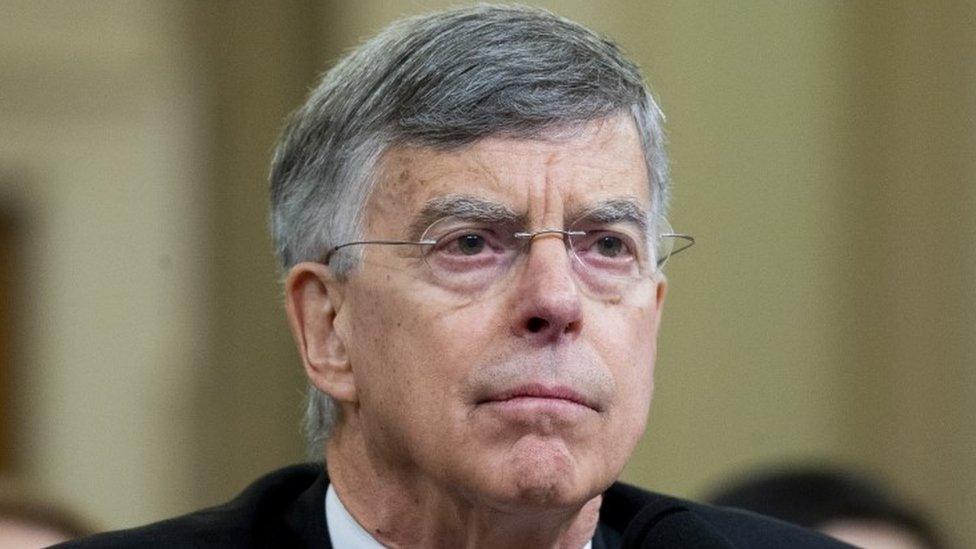
- Published3 October 2019
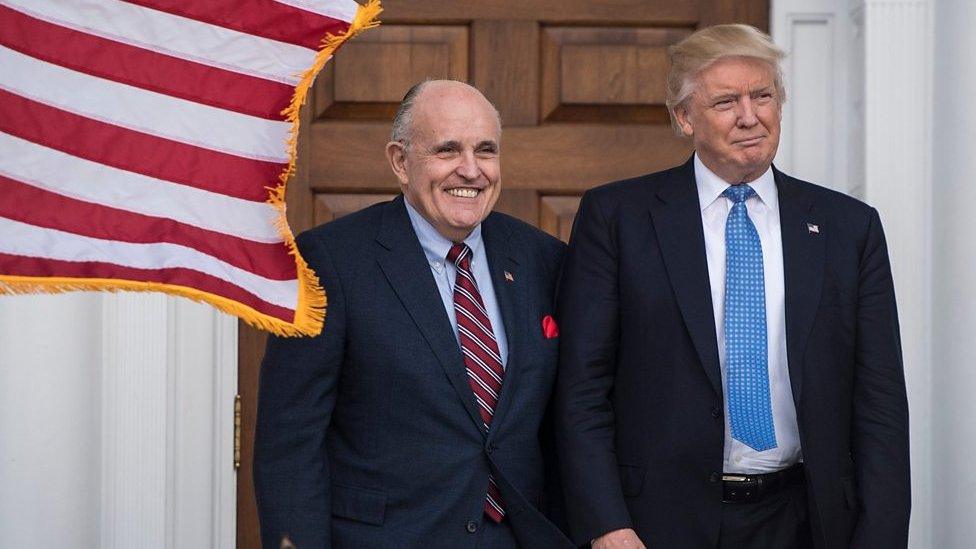
- Published10 December 2019
- Published21 November 2019
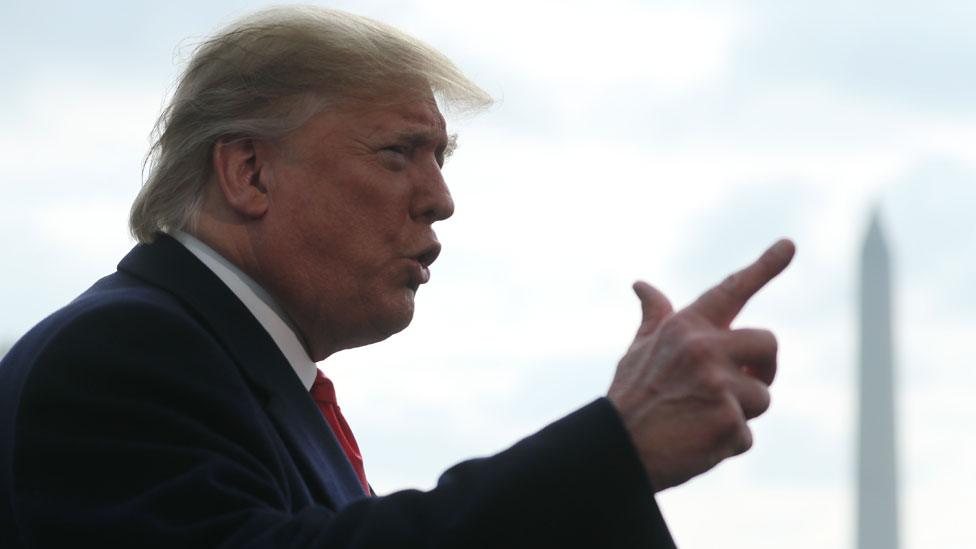
- Published26 October 2019
